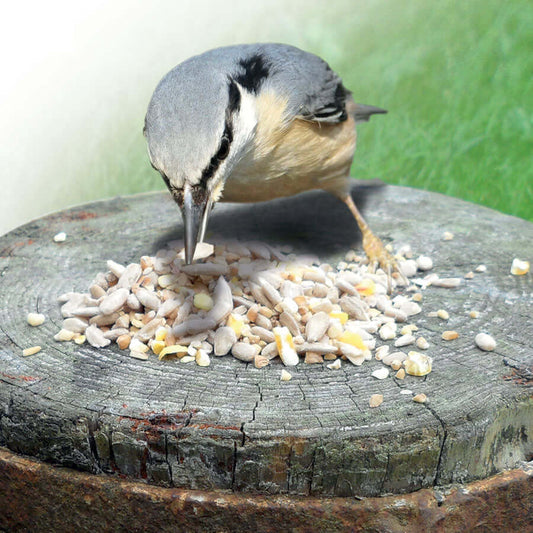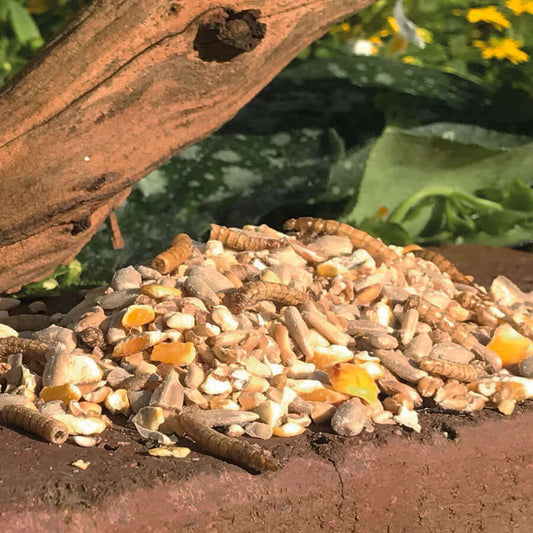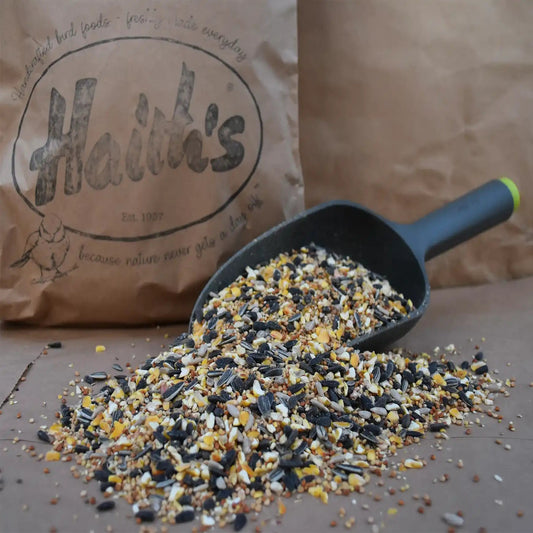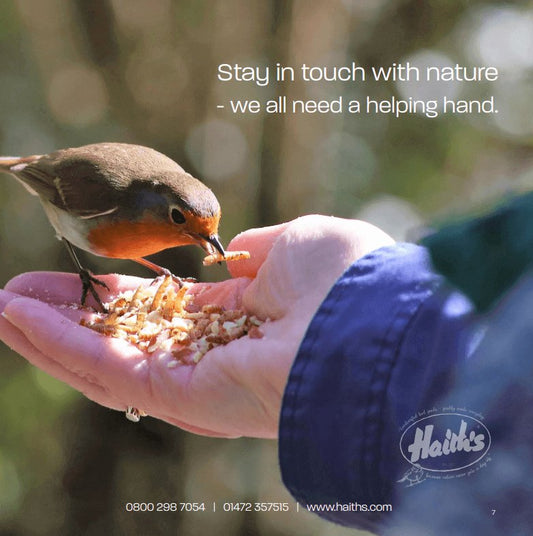Feeding Garden Birds in Winter: How to Help and What to Expect
At Haith’s we believe that feeding garden birds is one of life’s simplest and most rewarding pleasures - especially in winter.
-

When frosty mornings arrive and the countryside grows still, your garden can become a lifeline for wild birds searching for food. By putting out the right mix of seeds, suet and other nutritious treats, you can help them stay healthy through the cold months while enjoying the lively sights and sounds they bring to your outdoor space.
Here’s our complete guide to feeding birds in winter: what foods are best, which species you might spot, and how to make your garden a safe, welcoming haven for wildlife.
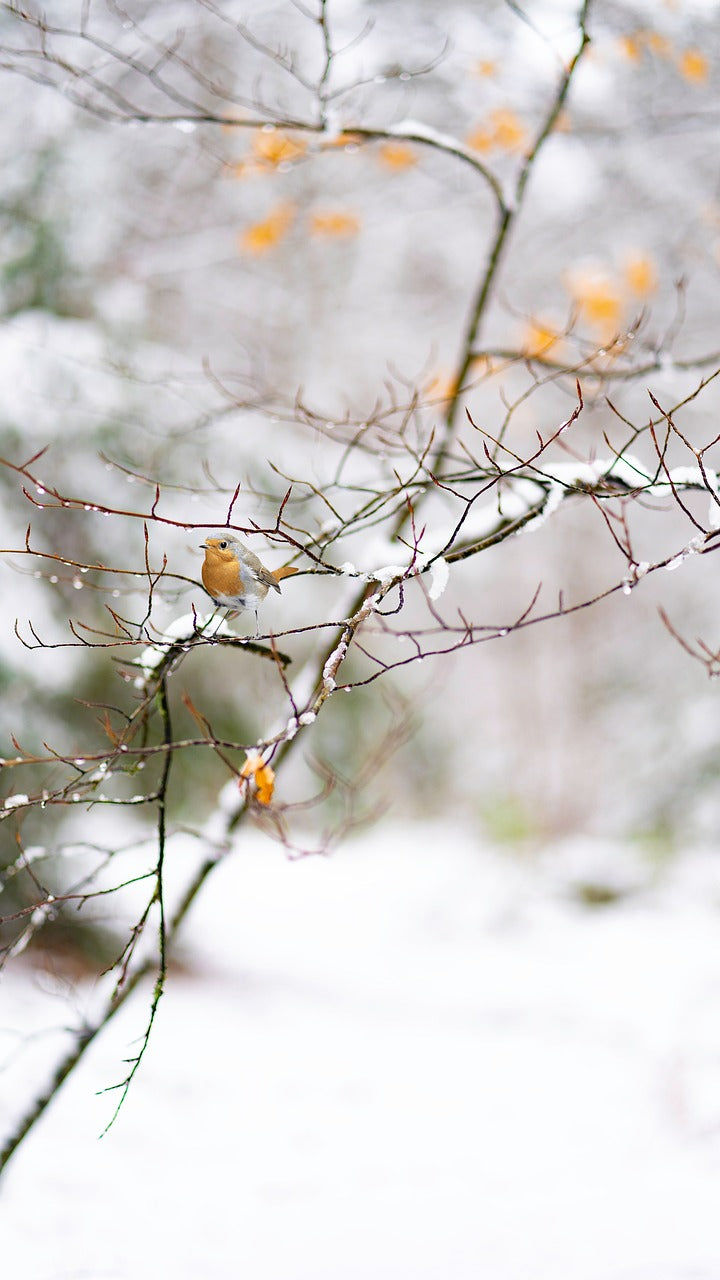
As the temperature drops, food becomes harder for birds to find. Insects are scarce, the soil is frozen, and hedgerow berries disappear quickly. To survive, birds need a reliable source of high-energy food every day - and that’s where we can lend a helping hand.
Feeding birds during winter doesn’t just keep them nourished; it also gives us the chance to stay connected to nature during the darker months. A few feeders and a regular routine can make a huge difference, helping everything from robins and tits to blackbirds and finches make it through the cold. And once birds discover your feeding station, they’ll often return day after day, brightening even the dullest of mornings.
Why Winter-Feeding Matters
The Best Foods for Winter Birds - Winter feeding is all about energy and nutrition. Birds need calorie-rich foods to maintain their body heat and strength. Below are some of the best options to offer throughout the season.
-

Sunflower Hearts and Seeds
Shop hereFull of essential oils and easy for small birds to handle, sunflower hearts are a winter staple. They’re especially loved by blue tits, great tits, chaffinches and goldfinches. Black oil sunflower seeds are another fantastic option, providing the same benefits with an extra boost of energy.
-

Peanuts
Shop hereA top source of fat and protein, peanuts are ideal for colder weather. Be sure to use unsalted, aflatoxin-tested peanuts from a trusted bird food supplier. Offer them in a mesh feeder to prevent birds from taking large chunks. Expect to see nuthatches, great spotted woodpeckers and a range of tit species visiting regularly.
-

Fat Balls and Suet Blocks
Shop hereWhen the temperature really drops, suet is a lifesaver. Suet balls, pellets or blocks provide instant energy and can be mixed with berries, mealworms or seeds to attract a variety of birds - including robins, starlings, blackbirds and long-tailed tits. Always remove any plastic mesh before hanging to avoid accidents.
-

Mealworms
Shop hereFor insect-eating birds such as robins, wrens and dunnocks, mealworms are a real treat. Dried mealworms are convenient and can be soaked in warm water before serving to make them soft and juicy - a welcome snack on icy days.
-

Seed Mixes
Shop hereA good quality bird seed mix is a winter essential. Look for blends containing sunflower hearts, millet, flaked maize and peanut granules. These provide variety and attract a wide range of species. Avoid cheap mixes that use fillers like lentils or split peas - many garden birds simply leave them behind.
-

Fruit and Kitchen Leftovers
Soft fruits like apples, pears and berries are excellent for blackbirds, thrushes and fieldfares. You can also offer small amounts of grated cheese, cooked rice or crushed plain biscuits. Just steer clear of anything salty, sugary or processed.
Birds You Might See in Winter
One of the joys of winter bird feeding is discovering which visitors turn up. Some are familiar faces, while others travel hundreds of miles to spend the season in UK gardens. If you live near woodland or hedgerows, you might also spot nuthatches, woodpeckers and even the occasional bullfinch stopping by for a meal.
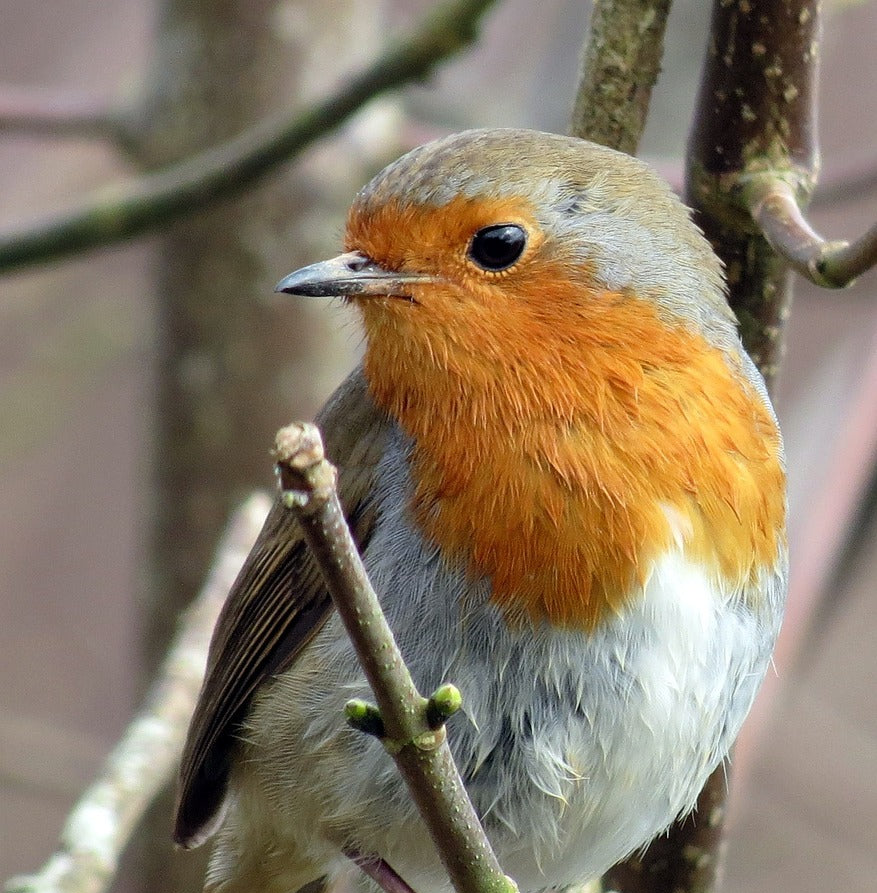
Robins
Cheerful, territorial and often the first to arrive at your feeders.
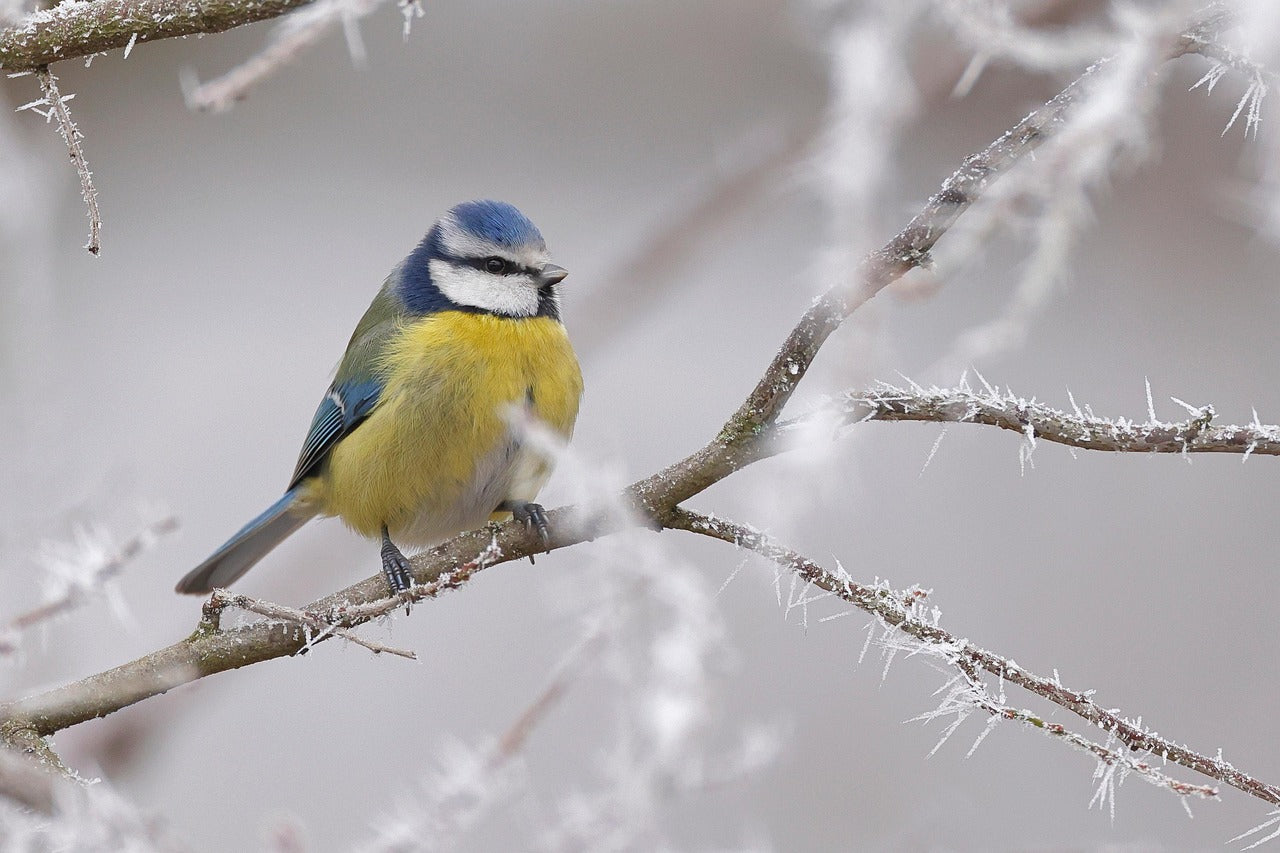
Blue tits and great tits
Agile and colourful, these lively visitors love suet and peanuts.
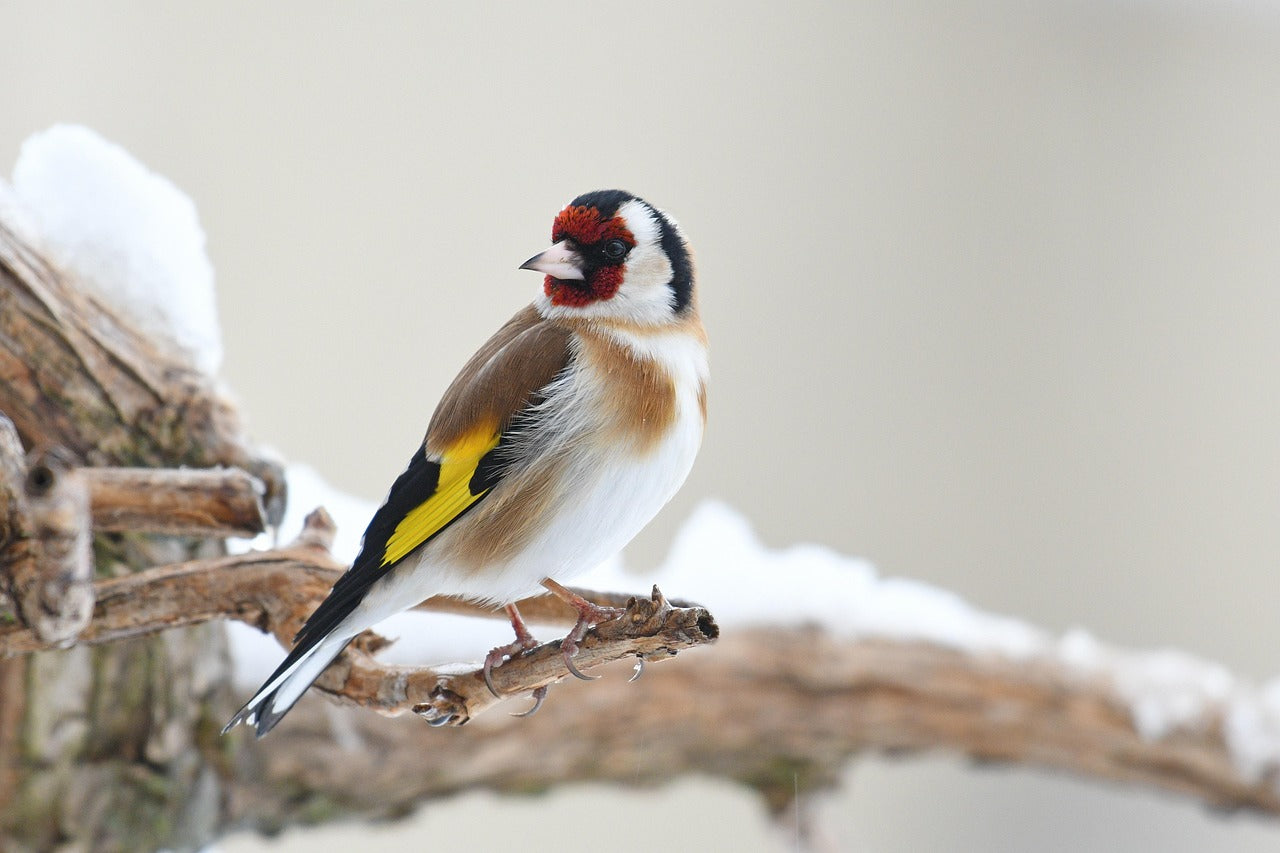
Goldfinches
With their bright plumage and cheerful chatter, they’re especially fond of sunflower hearts and niger seed.
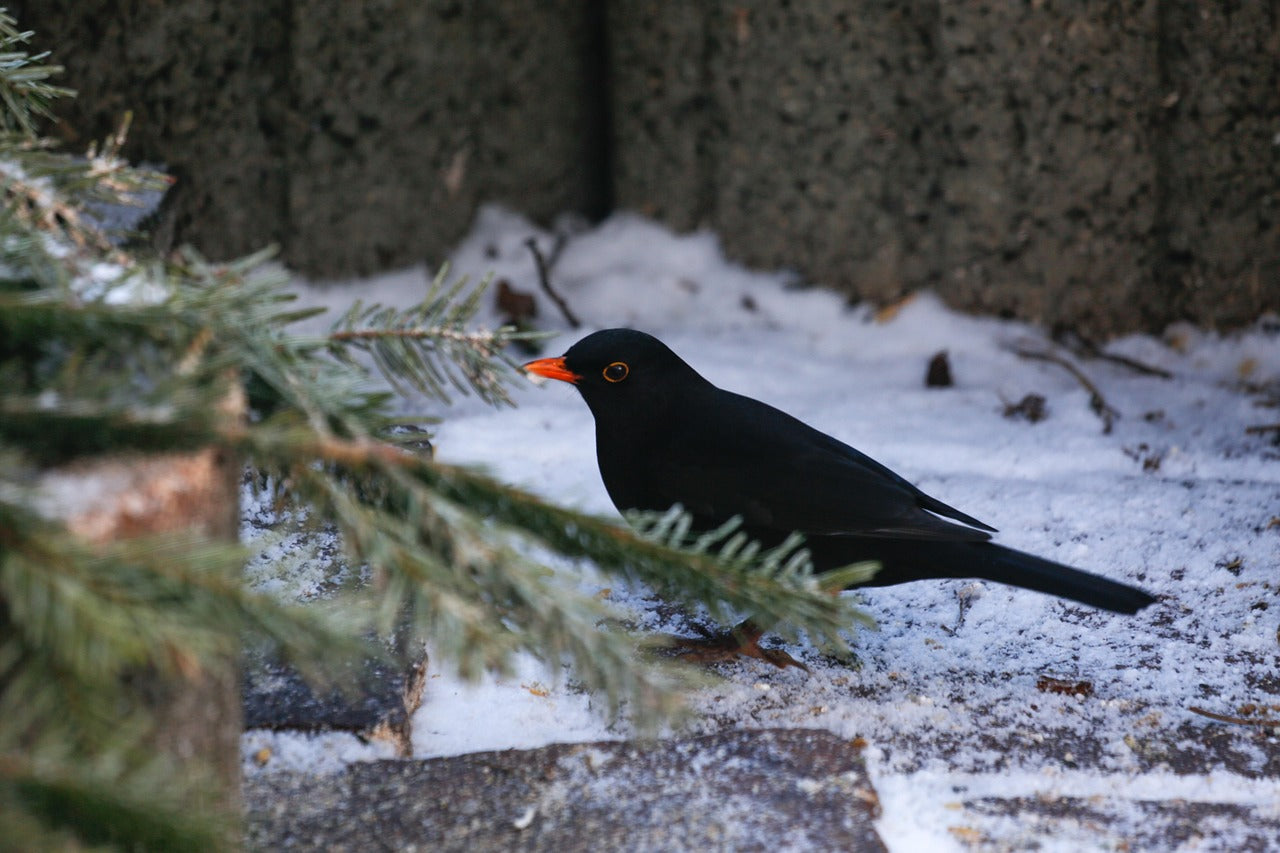
Blackbirds and thrushes
Ground feeders who appreciate fruit and mealworms.
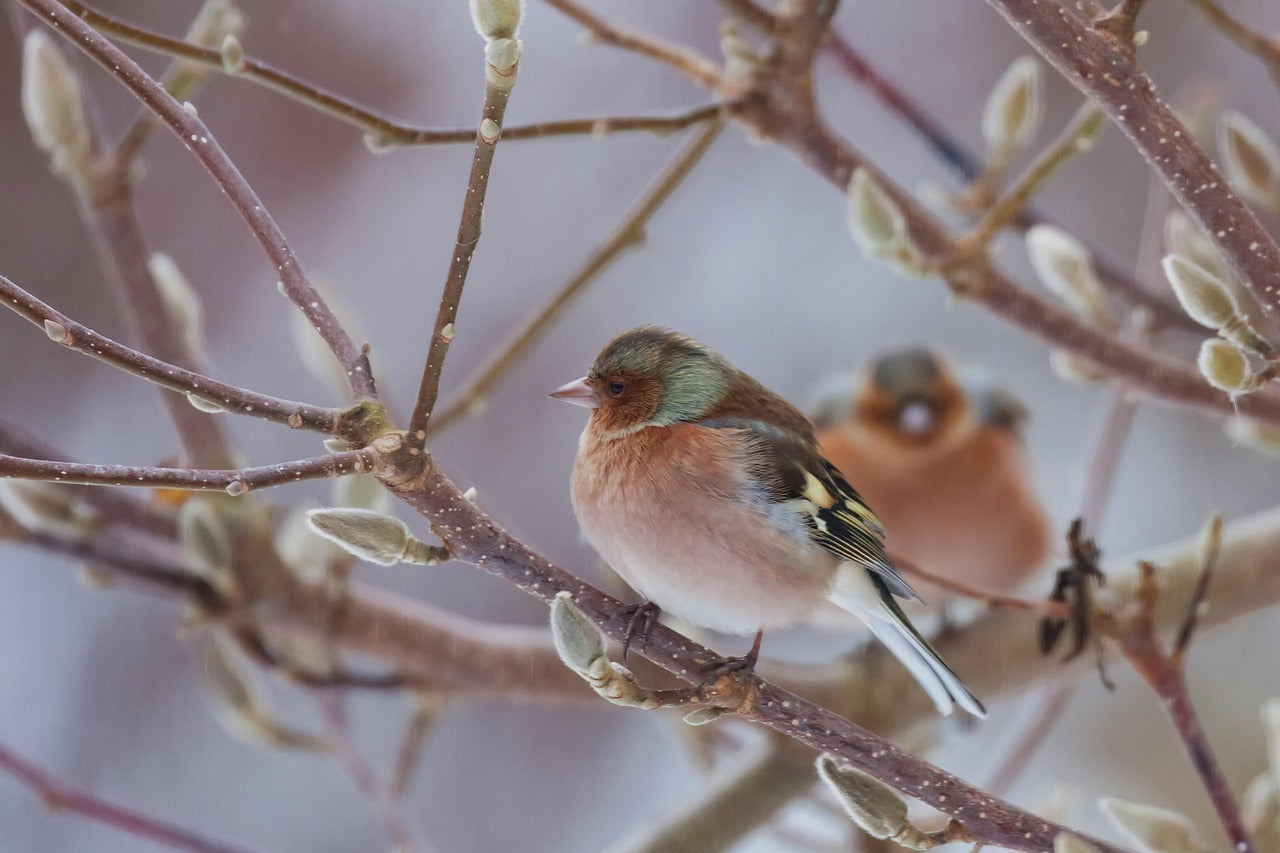
Chaffinches and greenfinches
Often seen in small flocks, favouring seed mixes and sunflower hearts.
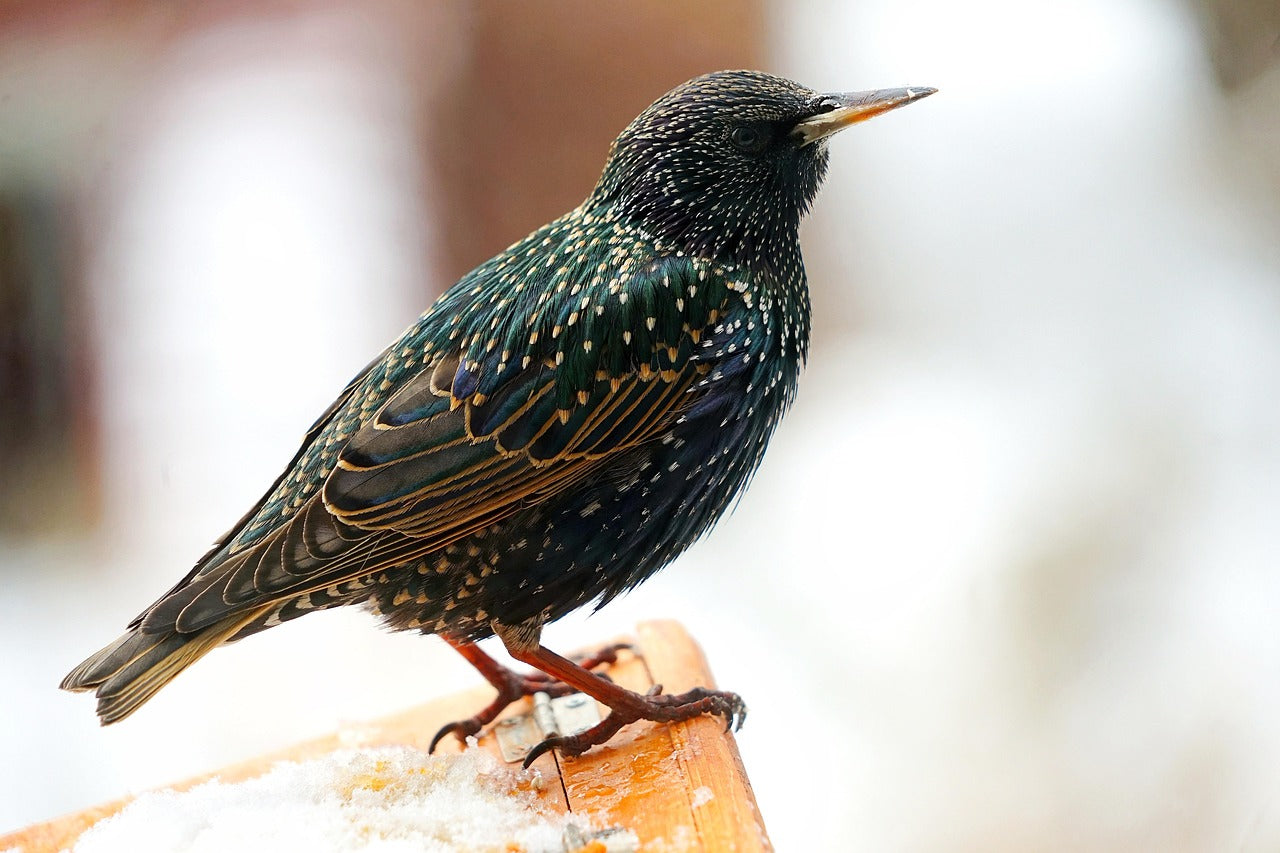
Starlings
Sociable and noisy, they’ll quickly gather
around fat balls and suet feeders.
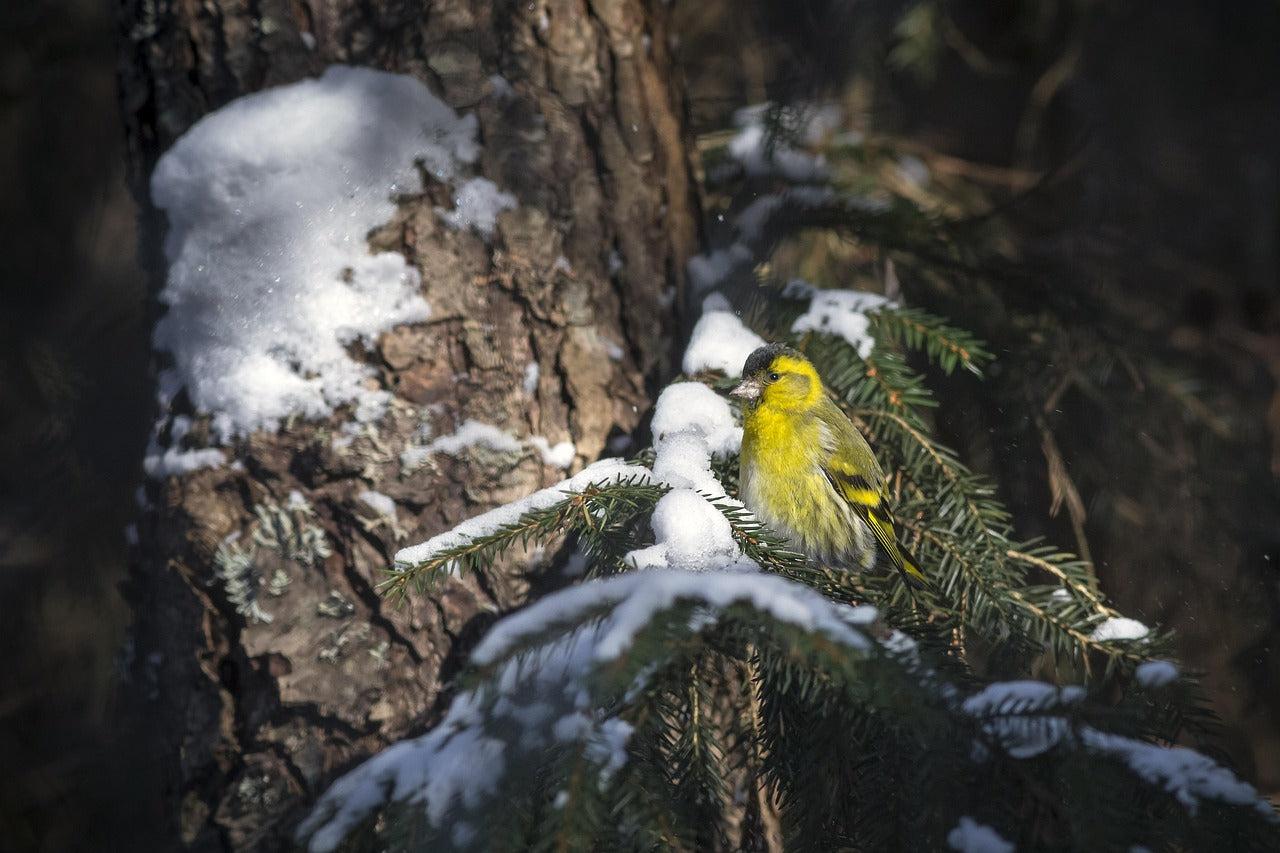
Siskins and redpolls
Winter visitors from northern Europe, adding a seasonal splash of variety.
Top Tips for Winter Bird Care
A few small steps will help keep your feeding area clean, safe and appealing all winter long:
1. Keep Feeders Clean - Wash feeders and tables regularly with warm, soapy water and allow them to dry completely before refilling. This prevents bacteria and disease spreading among your feathered guests.
2. Feed Consistently - Birds learn quickly where to find reliable food sources. Once you start feeding, try to top up regularly - especially in freezing or snowy weather. Mornings and late afternoons are the most valuable times for birds to refuel.
3. Provide Fresh Water - Water is just as vital as food. Place a shallow dish of
clean water outside and check it daily. If it freezes, add a small amount of warm (not hot) water to melt the ice.
4. Offer Shelter - A few dense shrubs, hedges or evergreens make excellent
roosting spots where birds can rest and stay out of the wind. Nest boxes also
double up as overnight shelters during frosty nights.
5. Avoid Food Waste - Only put out as much as birds can eat in a day or two. This keeps food fresh and discourages pests like rats or pigeons.
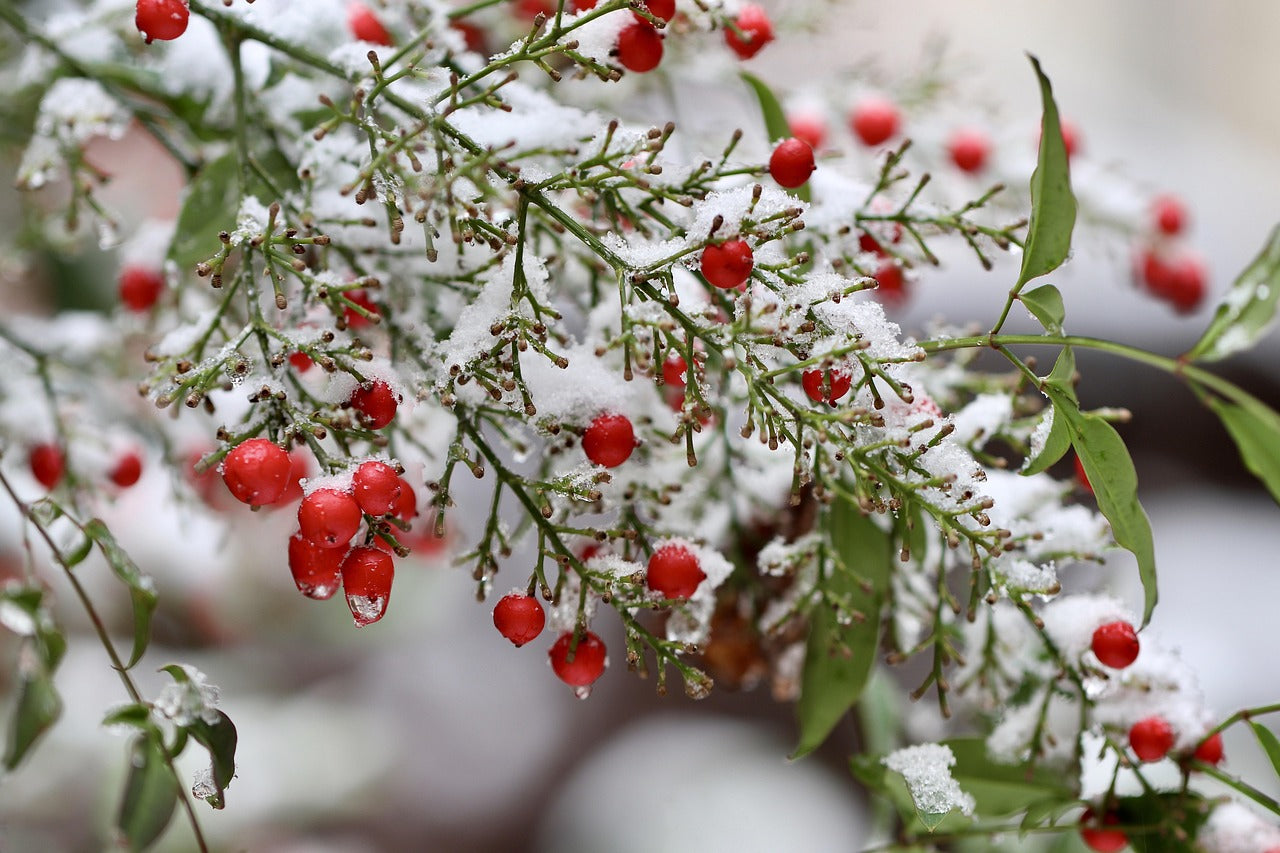
Creating a Winter Wildlife Haven
Feeding the birds can be the start of something bigger. If you have space, plant berry-bearing shrubs such as holly, hawthorn or cotoneaster to provide natural food and shelter. Leave some seed heads on plants like sunflowers or teasels to offer extra nourishment. These touches not only help wildlife but also bring beauty and interest to your garden throughout the colder months.
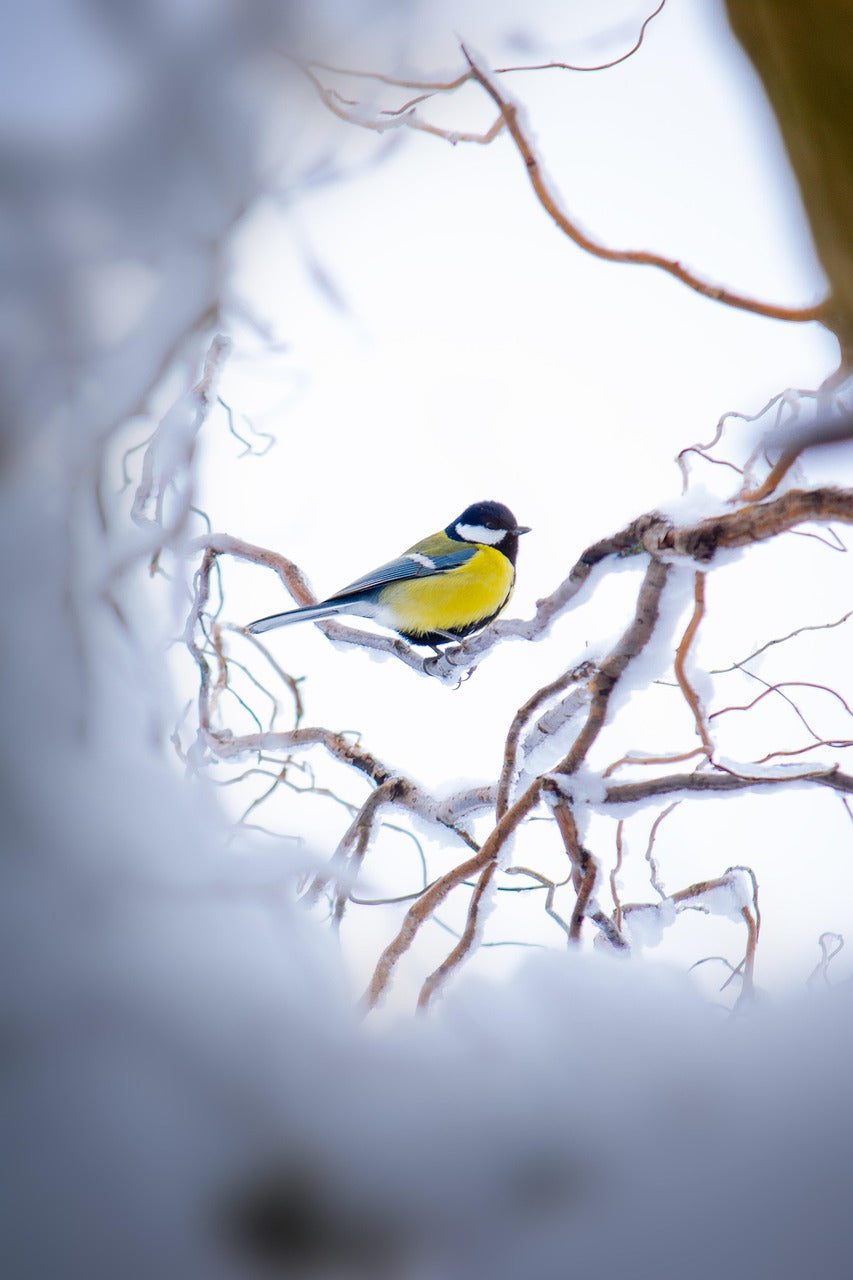
A Simple Act That Makes a Difference
Watching garden birds brings warmth and life to winter days. Whether it’s a robin perched proudly on a feeder or a charm of goldfinches fluttering at the seed tray, these small moments remind us how connected we are to nature. At Haith’s we’re proud to support bird lovers across the UK with nutritious, responsibly sourced food blends that help garden birds survive all year round. Every handful you put out makes a real difference and in return, you’ll enjoy the colour, song and charm that only wild birds can bring.
So, keep your feeders full, your water fresh, and your eyes open. The birds will thank you and your garden will feel alive, even on the coldest winter mornings.
Winter Warmth Starts with the Right Bird Food
Choose our wild bird foods this winter to give your garden birds the energy, warmth, and nutrition they need to survive the cold months.
-
Huskfree Advance™ - No Mess Wild Bird Food
Regular price From £6.99 GBPRegular priceUnit price / per£6.99 GBPSale price From £6.99 GBP -
Huskfree Advance™ with Mealworms - No Mess Mix
Regular price From £7.99 GBPRegular priceUnit price / per£7.99 GBPSale price From £7.99 GBP -
Premium Wheat-Free Bird Seed Mix - Now with Peanut Granules
Regular price From £5.99 GBPRegular priceUnit price / per£5.99 GBPSale price From £5.99 GBP -
Dried Mealworms for wild birds
Regular price From £6.29 GBPRegular priceUnit price / per£6.29 GBPSale price From £6.29 GBP








